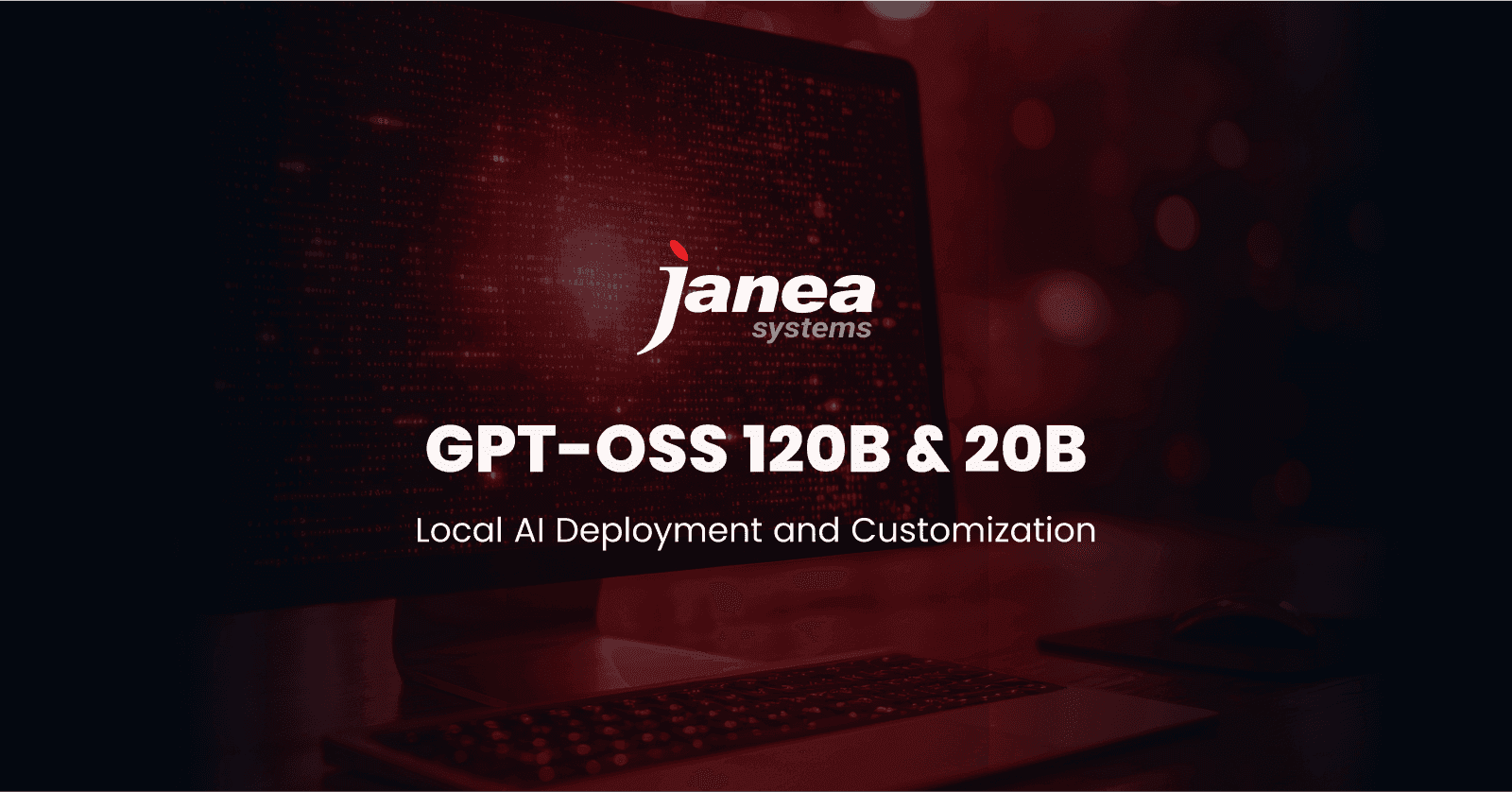GPT-OSS 120B & 20B – Open-Weight AI Models for Local Deployment
August 22, 2025
By Karol Kielecki
Open Weight AI Models,
Gpt Oss,
Gpt Oss 120b,
Gpt Oss 20b,
AI Local Deployment,
AI Development

What Are GPT-OSS Models?
OpenAI has released two new open-weight models—gpt-oss-120b and gpt-oss-20b—under the permissive Apache 2.0 license. This gives developers direct access to the model weights for local deployment and customization, while the underlying source code remains proprietary.
The result: greater flexibility for building self-hosted AI systems without relying solely on external APIs or cloud infrastructure.
Key Features and Capabilities
The GPT-OSS models combine strong reasoning skills with adaptable integration into diverse AI workflows.
Advanced reasoning capabilities
Handles complex logic, nuanced queries, and multi-step instructions with accuracy.
Tool and API integration
Easily connects with developer tools, APIs, and software to streamline existing workflows.
Agent-based automation
Supports intelligent, agent-driven processes for more dynamic and responsive AI systems.
gpt-oss-120b vs gpt-oss-20b
Benefits for Developers and Enterprises
Data security and privacy
Running models locally means sensitive data stays within your infrastructure—ideal for regulated industries and privacy-focused applications.
Cost efficiency and scalability
gpt-oss-120b runs on a single GPU, enabling enterprises to scale advanced AI without the high costs of fully cloud-based deployments.
Broader accessibility
gpt-oss-20b’s reduced hardware requirements allow AI to run on laptops and even some smartphones, supporting mobile and edge AI applications.
Customization flexibility
Developers can fine-tune and adapt models for specific use cases without restrictions common to closed platforms.
Technical Specifications
Mixture-of-Experts (MoE) architecture
Activates only part of the parameters per token (5.1B of 116.8B for 120b; 3.6B of 20.9B for 20b), delivering strong reasoning performance at lower compute cost than dense models.
Extended context window
Supports up to 131,072 tokens—suitable for deep document analysis, multi-file codebase understanding, and extended conversation continuity.
Safety and robustness
Tested under OpenAI’s Preparedness Framework, showing strong jailbreak resistance and instruction adherence, with performance close to o4-mini.
Industry Use Cases
- Edge and mobile-first companies – Run AI locally for offline assistants, embedded features, and private deployments.
- Regulated industries – Healthcare, finance, and legal sectors can operate models fully on-premises for compliance and privacy.
- Startups and research teams – Apache 2.0 licensing and transparent model structure make GPT-OSS models ideal for experimentation, niche adaptation, and specialized AI agents.
Policy and Compliance Considerations
This release aligns with priorities in the U.S. National AI R&D Strategic Plan and America’s AI Action Plan, both of which promote open and transparent AI systems. While not confirmed as a direct response, GPT-OSS reflects these principles by making high-performance AI more widely available.
Conclusion
OpenAI’s GPT-OSS models mark a shift toward greater developer control. With open-weight access, flexible deployment, and permissive licensing, they provide a strong foundation for innovation—whether in enterprise automation, research, or edge AI. For engineers focused on customization, scalability, and privacy, GPT-OSS is more than a release—it’s a platform for building advanced intelligent systems.
Frequently Asked Questions
OpenAI’s GPT-OSS models (gpt-oss-120b and gpt-oss-20b) are open-weight large language models released under the Apache 2.0 license. Unlike fully closed models, developers get direct access to model weights, enabling local deployment, fine-tuning, and customization for enterprise, research, and edge AI applications.
gpt-oss-120b: Comparable to OpenAI’s o4-mini, requires a single 80 GB GPU, best for enterprise-scale AI, advanced fine-tuning, and complex agent workflows. gpt-oss-20b: Optimized for consumer-grade hardware like high-end laptops and some smartphones, best for rapid prototyping, mobile integration, and resource-limited environments. This flexibility allows developers to choose the model that matches their hardware and use case.
The GPT-OSS models provide several advantages: Data security: Run models fully on-premises, keeping sensitive data private; Cost efficiency: Scale AI without heavy cloud costs; Customization: Fine-tune for domain-specific applications; Accessibility: Deploy AI on devices ranging from servers to smartphones. These benefits make GPT-OSS especially valuable for regulated industries, mobile-first companies, and AI research teams.
Related Blogs
Let's talk about your project
Let's talk about your project
Ready to discuss your software engineering needs with our team of experts?
